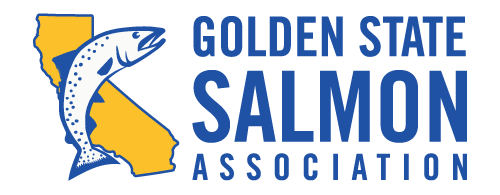Golden State Salmon Association has been on the forefront of fighting bad water policies for salmon in California for the last decade – policies and water diversions that cross political boundaries are directly responsible for the 2023 salmon season closure. For example, the Trump Administration slashed salmon protections in 2019 and instituted a ruling that allowed the Bureau of Reclamation to cause temperature pollution lethal enough kill 100% of the salmon in the Sacramento River for three years running. Since 2019, Governor Newsom has delayed the State Board’s Bay-Delta flow standard update process for years. The Board has failed to implement the 2018 flow standards and has not adopted flow requirements for the Bay-Delta or the Sacramento River. This directly led to increased salmon mortality and was fatal to the 2023 California salmon season.
On August 28, 2023, the New York Times dropped its 1st article in a series on the causes and consequences of disappearing water, which describes a continuation of the status quo: America Is Using Up Its Groundwater Like There’s No Tomorrow.
Excerpts and quotes from the article
“In other areas, including parts of Utah, California and Texas, so much water is being pumped up that it is causing roads to buckle, foundations to crack and fissures to open in the earth. And around the country, rivers that relied on groundwater have become streams or trickles or memories.”
“Two major California and Arizona aquifers recently matched or exceeded their lowest levels since NASA began collecting data two decades ago, according to research by Bridget Scanlon and Ashraf Rateb at the University of Texas at Austin. And parts of the vast Ogallala Aquifer beneath Kansas, eastern Colorado and the Oklahoma and Texas panhandles, an aquifer that irrigates a huge share of the global food supply, last year reached their lowest levels since the start of NASA’s program. The gravity-measuring satellites are part of NASA’s mission to study the workings of the planet.”
“One of the biggest obstacles is that the depletion of this unseen yet essential natural resource is barely regulated. The federal government plays almost no role, and individual states have implemented a dizzying array of often weak rules.”
“We overpumped it,” said Farrin Watt, who has been farming in Wichita County for 23 years. “We didn’t know it was going to run out.”
Read the article [if you get stuck behind a paywall try “reader view”]: https://www.nytimes.com/interactive/2023/08/28/climate/groundwater-drying-climate-change.html
